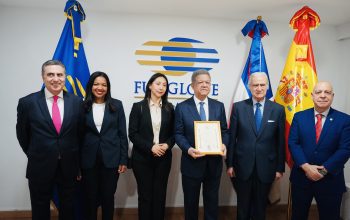news
GFDD Calls for a New Social Paradigm with Sustainable Tourism Playing a Key Role during the 55th Session of the Commission for Social Development
February 17, 2017
GFDD/FUNGLODE participated in the 55th Session of the Commission for Social Development which was convened from 1-10 February 2017, in New York, US. The Commission which opened on Wednesday February 1, under the priority theme “strategies for eradicating poverty to achieve sustainable development for all”, held its last day of negotiations on Friday February 10, when it approved three draft resolutions by the Economic and Social Council focusing on
Africa’s development, youth and the mainstreaming of disability in the implementation of the 2030 Agenda for Sustainable Development.
Throughout several high-level speakers took the floor to emphasize the priorities of the commission and the progress made to date in achieving them.
The elected Chair of the 55th Commission, Ambassador Philipp Charwath, Deputy Permanent Representative of Austria to the United Nations, underscored the need to pursue our efforts to achieve social development, while “the number of people living in poverty has been reduced from 1.9 billion in 1990 to 702 million today”. “Today’s generation can be the one that eradicates
poverty and turns the tide on inequality, exclusion and environmental degradation,” stated Frederick Musiiwa Makamure Shava of Zimbabwe, President of the Economic and Social Council. Assistant Secretary-General for Economic Development, Lenni Montiel, read out a statement on behalf of Secretary-General António Guterres, cautioning the participants that “The Commission is meeting at a time of global contradictions”, highlighting the growing gap between rich and
poor. The Secretary-General’s Envoy on Youth, Ahmad Alhendawi, called inequality the biggest challenge facing young people today, with around 500 million youth living on less than $2 a day.
General Assembly President Thomson remarked that the international community would need to secured sustainable financing for SDG implementation, given that “achieving the SDGs will require annual investments of between US$5-7 trillion”. He commented that
“it is obviously essential that all sources of public and private funds get tapped into” and noted that “policy and regulatory reforms should therefore be introduced to establish sustainable financial systems that encourage socially-inclusive and environmentally-sustainable practices”. Concluding his remarks, the PGA stated that implementing such reforms will help position nations to tap into the economic opportunities estimated to be worth at least
USD 12 trillion over the next 14 years through sustainable business models.
GFDD’s UN Programs Manager, Marc Jourdan submitted a joint oral statement on behalf of GFDD and Fundación Global Democracia y Desarrollo (Funglode). In his statement, Jourdan called for “a new social paradigm, in which tourism industries can play a crucial role by transforming its operating model to the sustainable development one, promoting social policies that lead to access
to education, job creation and the economic empowerment of local communities, so that they may better share the burdens and the benefits of economic growth”. Referring to the need to eradicate poverty under SDG1, Jourdan reminded attendees that as supported by research carried out by civil society organizations like GFDD, this transition will only be effective if it is supported at both the national and the local levels by each relevant stakeholder in both the public and the
private sectors.
A copy of the statement is available in English here and in Spanish here.
About the
Commission for Social Development:
Since the World Summit for Social Development in Copenhagen in 1995, the Commission for SCSocD has been the key United Nations body in charge of the follow up and implementation of the Copenhagen Declaration and Programme of Action.
Originally known as the Social Commission but renamed in 1966, CSocD was established by ECOSOC res. 10 (II) (1946). Its purpose was to advise ECOSOC on social policies of a general
character and, in particular, on all matters in the social field not covered by the specialised inter-governmental agencies. Since 2006, the Commission has taken up key social development themes as part of its follow up to the outcome of the Copenhagen Summit.
Related links:
https://www.un.org/development/desa/dspd/united-nations-commission-for-social-development-csocd-social-policy-and-development-division/csocd55.html
https://www.facebook.com/commissionsocial
https://twitter.com/undesadspd







